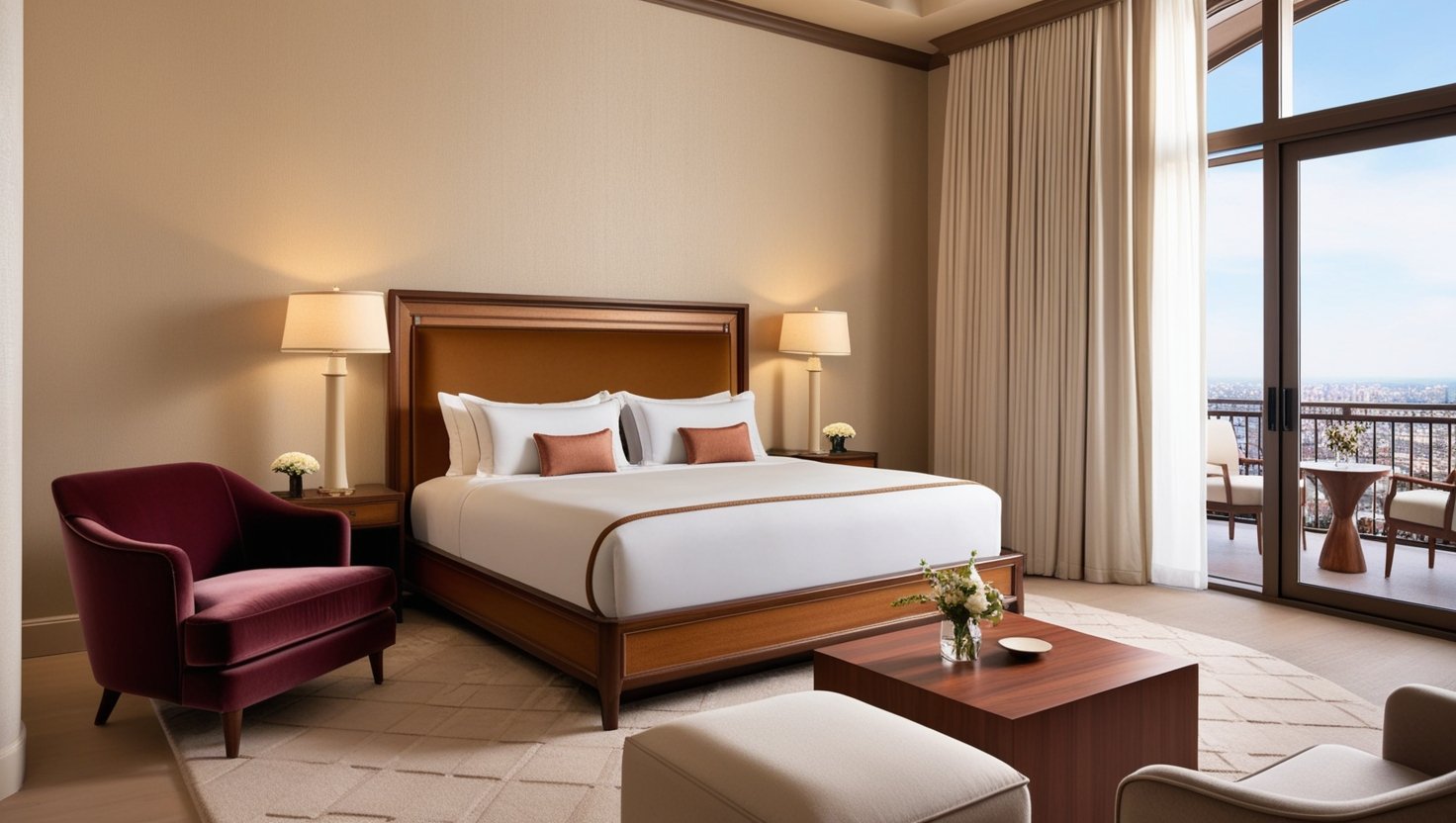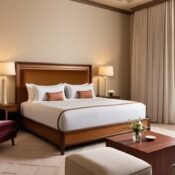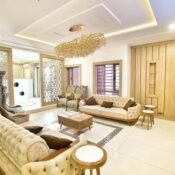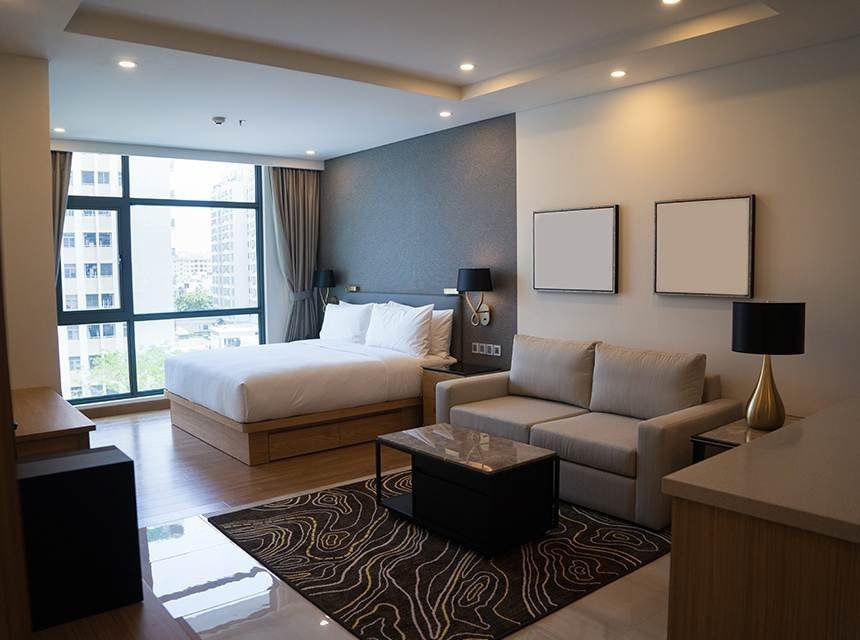
Short-Let Apartments in Abuja: A Comprehensive Guide
Introduction
Short-let apartments in Abuja, have gained significant popularity offering a flexible and cost-effective solution for travelers, business people, and expatriates. These apartments cater to the growing demand for temporary housing that provides the comforts of home without the long-term commitment associated with traditional rentals. This guide aims to help you navigate the options available, providing insights on where to find affordable accommodations, the best places to stay, and how short-let apartments compare to other housing options in Abuja.
What Are Short-Let Apartments?
Short-let apartments, also known as serviced or temporary rentals, are fully furnished apartments available for short-term stays. Unlike traditional rental properties that require long-term leases, short-let apartments can be rented for a few days, weeks, or months. They offer a range of amenities similar to those found in hotels, such as housekeeping, Wi-Fi, and security, but with the added benefits of more space, privacy, and the feeling of living in a home.
Short-let apartments are particularly suitable for tourists, corporate travelers, and anyone who needs temporary accommodation. Compared to staying in a hotel, they often provide better value for money, especially for extended stays. Moreover, they cater to various budgets, with options ranging from budget-friendly studios to luxurious multi-bedroom units.
Why Choose Short-Let Apartments in Abuja?
There are several reasons why short-let apartments are an excellent choice in Abuja:
- Flexibility: You can rent a short-let apartment for any duration, from a few days to several months. This flexibility makes them ideal for temporary stays, business trips, or relocating to Abuja.
- Cost-effectiveness: When compared to hotel stays, especially for longer periods, short-let apartments can offer significant savings. You can cook your meals, do your laundry, and avoid the extra costs typically associated with hotels.
- Home Comforts: Short-let apartments come fully furnished and equipped with amenities like a kitchen, living area, and sometimes even a washing machine. This setup provides the comfort of a home away from home.
- Ideal for Groups and Families: If you’re traveling with a group or family, renting a short-let apartment can be more convenient and affordable than booking multiple hotel rooms. The extra space and facilities like a kitchen and living room make it easier to manage group travel.
Short-let apartments in Abuja cater to different needs, with options available for budget travelers as well as those seeking luxury accommodations. Depending on the area, amenities, and duration of stay, prices and experiences can vary significantly.
Where Is the Cheapest Place to Live in Abuja?
When it comes to finding budget-friendly areas in Abuja, some neighborhoods offer more affordable living options without compromising on basic amenities. While Abuja is known for being one of the more expensive cities in Nigeria, certain districts provide more cost-effective accommodation for short-term stays.
- Lugbe: Located along the Airport Road, Lugbe is considered one of the cheapest places to live in Abuja. It offers a variety of short-let apartment options that cater to budget travelers, with prices lower than those in more central locations. Although it is a bit farther from the city’s central business district, its affordability and growing infrastructure make it an attractive option for those looking to save on accommodation costs.
- Kubwa: Another affordable area is Kubwa, a suburban district located to the northwest of Abuja’s city center. It has a mix of budget-friendly short-let apartments, with relatively lower prices compared to upscale areas. Kubwa’s residential nature, coupled with local markets and eateries, make it a suitable choice for those on a tight budget.
- Nyanya: Situated on the outskirts of Abuja, Nyanya offers some of the lowest rental costs in the city. While it may not provide the same level of infrastructure and services as central districts, it is an option for travelers who prioritize cost savings over proximity to downtown Abuja.
Where Is the Best Area to Live in Abuja?
The best area to live in Abuja depends on individual preferences, including factors such as security, amenities, proximity to work, and lifestyle. Here are some of the top-rated areas for short-let apartment rentals:
- Wuse: Wuse is one of the busiest districts in Abuja, located in the heart of the city. It offers a blend of residential and commercial properties, making it a convenient place to stay. Wuse is well-known for its shopping centers, restaurants, and business hubs, making it a favorite choice for short-term visitors who need easy access to services.
- Gwarimpa: Known for being the largest housing estate in West Africa, Gwarimpa is a well-planned area with modern infrastructure. It is considered one of the best residential locations for families and professionals who want a peaceful environment while still being close to essential amenities.
- Maitama: For those looking for a luxurious experience, Maitama is one of Abuja’s high-end districts. It is a prestigious area that hosts embassies, international organizations, and luxury accommodations. Short-let apartments in Maitama come with higher price tags but offer top-notch amenities, security, and proximity to business and government offices.
What Is the Most Expensive Area in Abuja?
If you’re wondering about the most exclusive and expensive neighborhoods in Abuja, the following areas top the list due to their luxurious properties and high-profile residents:
- Asokoro: Asokoro is often considered the most expensive area in Abuja, known for its upscale living, government residences, and diplomatic missions. Short-let apartments here are typically high-end, featuring luxury amenities such as private gyms, swimming pools, and premium security services. The area is highly secure and offers proximity to key government buildings and embassies.
- Maitama: As mentioned earlier, Maitama is another affluent district in Abuja. The neighborhood features some of the city’s most opulent residences, catering to high-net-worth individuals and expatriates. Short-let rentals in Maitama are among the priciest in Abuja, with properties offering exceptional amenities and exclusive services.
- Jabi: While Jabi is not as expensive as Asokoro or Maitama, it is still considered a high-end area due to its modern infrastructure, shopping centers, and scenic Jabi Lake. The availability of luxury short-let apartments with views of the lake or close to shopping malls adds to its appeal for those willing to pay a premium.
What Is the Monthly Cost of Living in Abuja?
The monthly cost of living in Abuja can vary widely depending on the location, lifestyle, and type of accommodation. For those considering short-let apartments, here’s a breakdown of typical expenses:
- Housing: The cost of short-let apartments in Abuja ranges from ₦100,000 to ₦500,000 per month, depending on the location, amenities, and apartment size. Budget options are available in outer districts like Lugbe and Kubwa, while luxury options in areas like Maitama and Asokoro can cost significantly more.
- Utilities: For short-let apartments, some utilities like water, electricity, and internet may be included in the rental price, while others may be billed separately. Expect to pay around ₦20,000 to ₦40,000 monthly if utilities are not included.
- Transportation: Getting around Abuja involves either private car services or public transport. A monthly transportation budget might range between ₦20,000 to ₦50,000, depending on the frequency of travel and mode of transport.
- Food: Dining and groceries can cost approximately ₦30,000 to ₦100,000 per month, with prices varying based on whether you cook at home or eat out frequently.
Overall, a comfortable monthly budget for living in Abuja, including short-let accommodation, can range from ₦250,000 to ₦1,000,000, depending on individual choices and lifestyle.
Types of Short-Let Apartments in Abuja
Abuja offers a variety of short-let apartment types to cater to different needs and budgets:
- Studio Apartments: Ideal for solo travelers or couples, studio apartments are compact, featuring a single open-plan space that combines the living area, bedroom, and kitchenette. They are generally the most affordable option.
- One-Bedroom Apartments: These apartments provide a separate bedroom, living room, and kitchen, offering more space and privacy compared to studio apartments. Suitable for longer stays or small families.
- Two-Bedroom Apartments: Designed for larger groups or families, two-bedroom short-let apartments come with multiple bedrooms, a living area, and a fully equipped kitchen. They are a popular choice for corporate groups or family vacations.
- Luxury Apartments and Penthouses: For those seeking a more opulent stay, luxury short-let apartments and penthouses are available in upscale areas like Maitama and Asokoro. These properties come with high-end amenities such as private gyms, swimming pools, and concierge services.
Amenities to Expect in Abuja’s Short-Let Apartments
Short-let apartments in Abuja often come equipped with various amenities to make your stay comfortable. The range of amenities can vary depending on the property’s location and price point:
- Standard Amenities: Most short-let apartments offer basic amenities such as air conditioning, Wi-Fi, cable TV, and kitchen facilities. Housekeeping services may also be included in the rental.
- High-End Amenities: In more upscale short-let apartments, you can expect premium amenities such as swimming pools, gyms, laundry services, and 24-hour security. Some luxury apartments may also include concierge services, private parking, and access to recreational facilities.
- Family-Friendly Features: Some apartments cater to families with children by providing amenities like cribs, play areas, or kid-friendly furniture.
What Is the Monthly Cost of Living in Abuja?
The monthly cost of living in Abuja can vary widely depending on the location, lifestyle, and type of accommodation. For those considering short-let apartments, here’s a breakdown of typical expenses:
- Housing: The cost of short-let apartments in Abuja ranges from ₦100,000 to ₦500,000 per month, depending on the location, amenities, and apartment size. Budget options are available in outer districts like Lugbe and Kubwa, while luxury options in areas like Maitama and Asokoro can cost significantly more.
- Utilities: For short-let apartments, some utilities like water, electricity, and internet may be included in the rental price, while others may be billed separately. Expect to pay around ₦20,000 to ₦40,000 monthly if utilities are not included.
- Transportation: Getting around Abuja involves either private car services or public transport. A monthly transportation budget might range between ₦20,000 to ₦50,000, depending on the frequency of travel and mode of transport.
- Food: Dining and groceries can cost approximately ₦30,000 to ₦100,000 per month, with prices varying based on whether you cook at home or eat out frequently.
Overall, a comfortable monthly budget for living in Abuja, including short-let accommodation, can range from ₦250,000 to ₦1,000,000, depending on individual choices and lifestyle.
Types of Short-Let Apartments in Abuja
Abuja offers a variety of short-let apartment types to cater to different needs and budgets:
- Studio Apartments: Ideal for solo travelers or couples, studio apartments are compact, featuring a single open-plan space that combines the living area, bedroom, and kitchenette. They are generally the most affordable option.
- One-Bedroom Apartments: These apartments provide a separate bedroom, living room, and kitchen, offering more space and privacy compared to studio apartments. Suitable for longer stays or small families.
- Two-Bedroom Apartments: Designed for larger groups or families, two-bedroom short-let apartments come with multiple bedrooms, a living area, and a fully equipped kitchen. They are a popular choice for corporate groups or family vacations.
- Luxury Apartments and Penthouses: For those seeking a more opulent stay, luxury short-let apartments and penthouses are available in upscale areas like Maitama and Asokoro. These properties come with high-end amenities such as private gyms, swimming pools, and concierge services.
Amenities to Expect in Abuja’s Short-Let Apartments
Short-let apartments in Abuja often come equipped with various amenities to make your stay comfortable. The range of amenities can vary depending on the property’s location and price point:
- Standard Amenities: Most short-let apartments offer basic amenities such as air conditioning, Wi-Fi, cable TV, and kitchen facilities. Housekeeping services may also be included in the rental.
- High-End Amenities: In more upscale short-let apartments, you can expect premium amenities such as swimming pools, gyms, laundry services, and 24-hour security. Some luxury apartments may also include concierge services, private parking, and access to recreational facilities.
- Family-Friendly Features: Some apartments cater to families with children by providing amenities like cribs, play areas, or kid-friendly furniture.
The choice of amenities can significantly affect the rental cost, so it is advisable to confirm what is included before booking.
Frequently Asked Questions (FAQs) on Short-let apartments in Abuja
The cheapest places to live in Abuja include areas such as Lugbe, Kubwa, and Nyanya. These neighborhoods offer more affordable accommodation options compared to the central business district, making them suitable for budget-conscious travelers and residents.
The best area to live in Abuja depends on your preferences. Popular choices include Wuse for its central location, Gwarimpa for its peaceful environment and modern infrastructure, and Maitama for those seeking a luxurious lifestyle close to business and government offices.
Asokoro is considered the most expensive area in Abuja due to its upscale properties, diplomatic residences, and high-profile inhabitants. Other high-end areas include Maitama and Jabi, where luxury accommodations and amenities come at a premium.
The monthly cost of living in Abuja varies depending on lifestyle and location. For those staying in short-let apartments, expect to spend between ₦250,000 to ₦1,000,000 per month, which includes housing, utilities, transportation, and food expenses.
Short-let apartments in Abuja are fully furnished rentals available for short-term stays, ranging from a few days to several months. They offer a flexible accommodation option with amenities similar to hotels but often provide more space and comfort. Booking is typically done through online platforms or real estate agents, with payment options including daily, weekly, or monthly rates.




